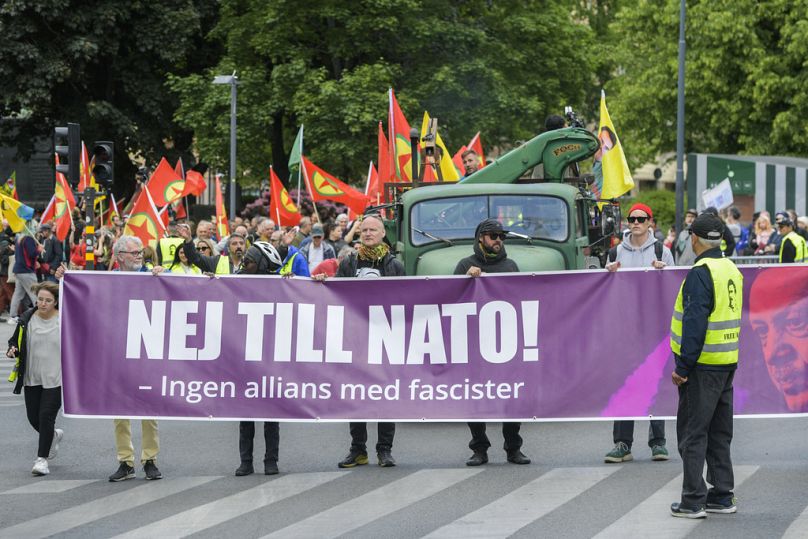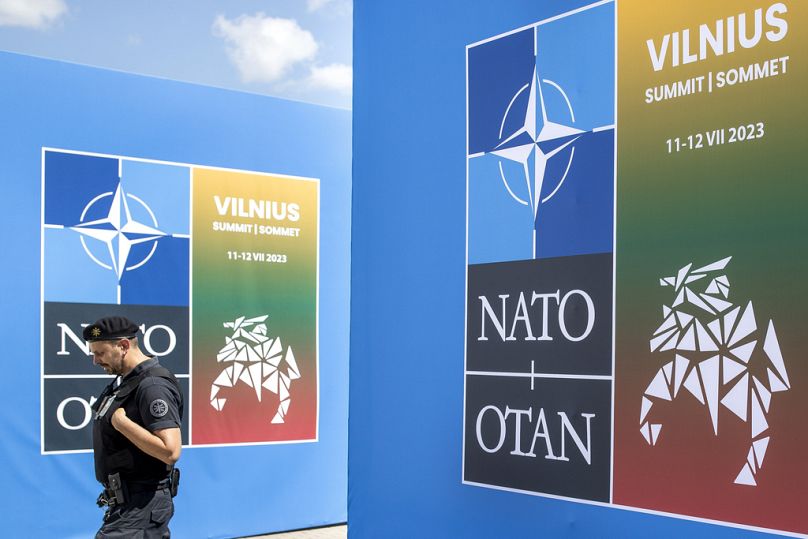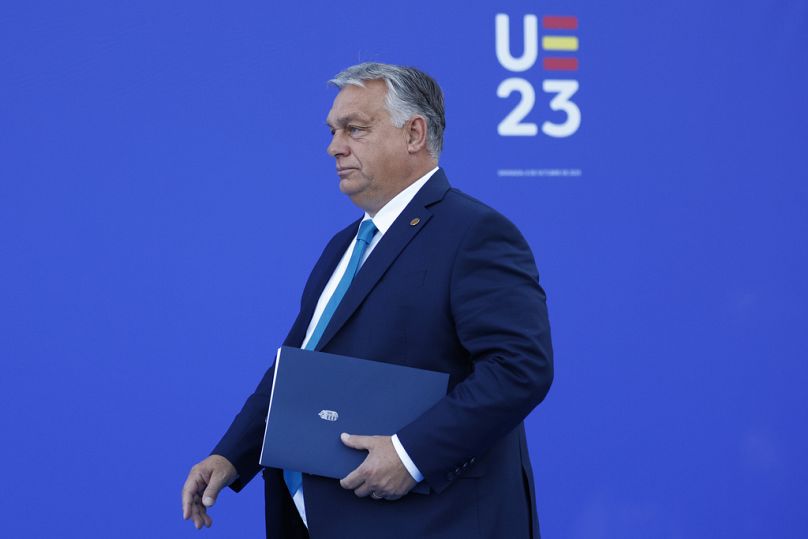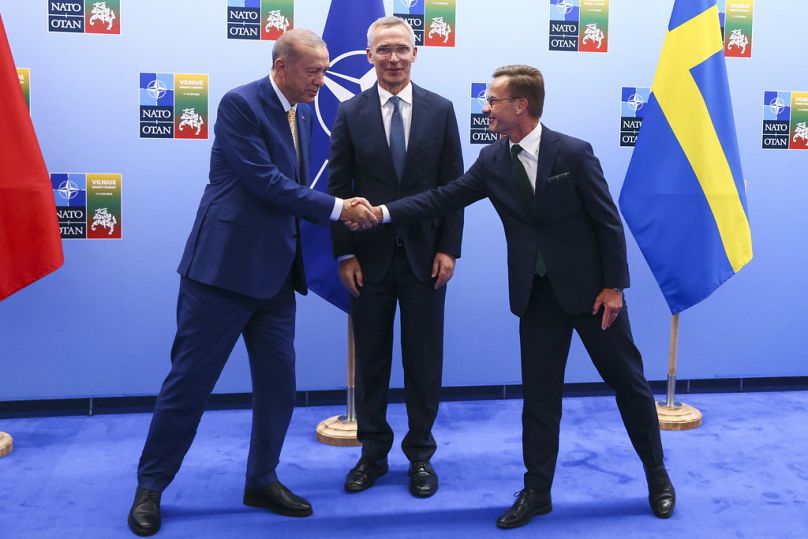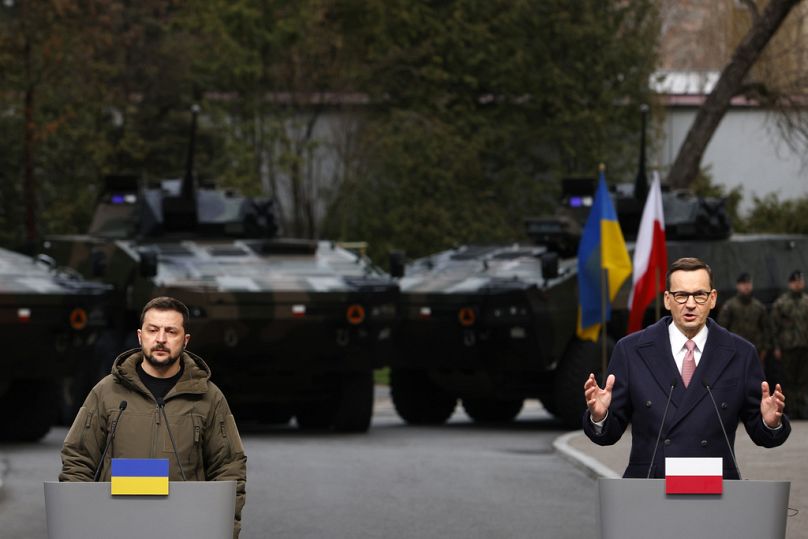Joining NATO is not like joining the Schengen Zone — it is a commitment to shed blood for one another in the event of any invasion, Dr Gladden Pappin writes.
Fifteen months after Sweden was invited to join NATO, its accession to the joint defence alliance is at a clear inflexion point.
 ADVERTISEMENT
ADVERTISEMENT
 ADVERTISEMENT
ADVERTISEMENT
Until this summer, Sweden’s accession looked like a fait accompli, pending what everyone assumed would be an eventual, pro forma approval by Hungary and Turkey.
But as Ukraine’s defensive efforts have run aground and attention has turned elsewhere even in the most hawkish corners of the Western alliance, the Swedish candidacy is firmly on the rocks.
It is worth asking why.
'Rapid shedding of historical neutrality'
In the weeks after the Russian full-scale invasion of Ukraine in February 2022, fundamental assumptions about the structure of the Western alliance were thrown out the window.
Age-old policies of neutrality suddenly looked “immoral,” and pressure was duly brought on Sweden and Finland to step away from the sidelines and join NATO.
During the spring of 2022, Swedes themselves expressed concern at the rapid shedding of their historical neutrality. Yet international frustration is currently directed at Turkey and Hungary for not yet ratifying Sweden’s accession.
Hungary and Turkey aren’t stalling arbitrarily. The core problem with Sweden’s accession is that treating it as an inevitable expansion has undermined trust within the alliance.
Resolving potential points of dispute prior to expansion is essential for a defensive alliance.
Unlike a mere security alliance where military norms and methods are harmonised, a mutual defensive alliance demands a far higher level of commitment.
Joining NATO is not like joining the Schengen Zone; it is a commitment to shed blood for one another in the event of any invasion.
Risks that need to be resolved beforehand
In the days after Russia’s invasion of Ukraine, NATO’s senior members and international influencers decided to push hard for its expansion — on an expedited basis, sidestepping typical NATO procedures.
But when diplomats describe Hungary’s hesitations about ratifying Sweden as an “annoying sideshow,” they stir bad blood which does not contribute to the strengthening of a defensive alliance.
While Hungary and Turkey have agreed to NATO’s expansion at a political and diplomatic level, the decision ultimately rests with the parliaments of both countries.
There are other reasons that Sweden’s accession has stalled, as well. In recent months, Sweden has been undergoing a series of violent public incidents surrounding the burning of the Quran that have angered Turkey and prompted disappointment from the Hungarian foreign ministry as well.
Just recently, Sweden’s police chief Anders Thornberg noted that the country has experienced an “unprecedented” wave of violence.
NATO’s founding documents imply that internal stability and security, as well as mutual compatibility, are preconditions for accession and that internal strife shouldn’t be imported into NATO.
According to Article 4, parties to the treaty “will consult together whenever, in the opinion of any of them, the territorial integrity, political independence or security of any of the Parties is threatened.”
Allowing a new member to join NATO while it undergoes internal turmoil, or is in political tension with an existing member, brings with it obvious risks that should be resolved beforehand.
Engaging in careful diplomatic cultivation
Some level of cultural compatibility is also assumed by accession. Article 2 of the North Atlantic Treaty insists that “the further development of peaceful and friendly international relations” among the parties result from the treaty. Both Hungary and Turkey have complaints on these grounds.
In April, Sweden joined the European Commission’s case against Hungary at the European Court of Justice — part of the EU-level actions that are holding up billions of euros of funds to which Hungary is otherwise entitled.
As a diplomatic strategy for paving the way to accession, decisions like these are strange, to say the least.
Second, state educational programming in Sweden has characterised Hungary as a backsliding democracy — drawing outrage from Hungarian parliamentarians.
While some have sought to pooh-pooh the anti-Hungarian educational material, noting that it was several years old, these issues are precisely the type that should be sorted out prior to accession.
Instead of engaging in careful diplomatic cultivation of Hungary, Sweden has assumed that Budapest will follow Ankara and hence does not require much direct attention. Such an approach is hardly good preparation for a defensive alliance.
Periodic Quran burnings need to be resolved in satisfactory manner
Similarly, an important part of Turkey’s international image is as a guardian of Islamic culture and civilisation.
The periodic burnings of the Quran that occur in Sweden are not only offensive to Turkey but also indicate the presence of a difficult internal situation.
Although Hungary comes from a different cultural background, it enjoys good relations with Turkey and is able to understand the perspective that has caused Ankara to take a cautious approach toward the Swedish accession.
Currently, it is an open question whether these matters can be resolved in a manner satisfactory to Turkey as well as to the parliamentary representatives of Hungary’s voters.
From a security standpoint, the urgency of the early days of the war has also faded. With Russia bogged down in Ukraine, it is not going to be launching incursions into NATO territory anytime soon, and claims about Russia’s imperial ambitions seem hardly credible.
Arguments for NATO’s expansion now have to be made in a more specific and strategic, not broad-brush manner.
Sweden’s accession is on hold precisely because Turkey and Hungary understand the nature of the alliance and want to proceed only when the diplomatic, strategic and political elements have been fully resolved.
Urgency to join NATO subsided
The larger reason, then, is that Sweden’s accession to NATO no longer looks like an urgent military imperative for key NATO members.
Sweden’s military contribution to NATO would be rather slender, and the scenarios for mutual defence are likelier to involve committing American troops to protect Sweden than vice versa.
Given that cultural differences among NATO members — and within countries — have already been increasing, it is important to ask whether each expansion strengthens overall defensive resilience or stretches mutual goodwill beyond the breaking point, by creating mutual obligations that eventually generate animosity.
In recent days, Polish Prime Minister Mateusz Morawiecki has explained that Poland will not be transferring new arms acquisitions to Ukraine.
Likewise, President Andrzej Duda has warned that Poland will not be pulled down along with Ukraine, as the latter continues to suffer.
With NATO’s most hawkish members hesitant about their own arms transfers, while the alliance itself remains formally uninvolved, it is natural that overall sentiment toward expansion might also cool or slow.
NATO membership is a serious committment
Ultimately, it is crucial to understand what the commitment to NATO membership means both for an incoming member and for existing members of NATO.
Decisions about expanding collective defence obligations can only be made clearly when that is evaluated frankly and democratically by each existing member.
With the rush of spring 2022 now a fading memory, the opportunity for cooler heads to ask questions has now arisen.
Sweden may yet join NATO, or the difficulties that have arisen may block its path for the foreseeable future.
Either way, the overall interests of the alliance are served only when each member — including the new one — is fully prepared for the mutual obligations such a step entails.
Dr Gladden Pappin is President of the Hungarian Institute of International Affairs (HIIA). Since 2021, he has been living in Hungary and has been a senior guest lecturer at Mathias Corvinus Collegium.
At Euronews, we believe all views matter. Contact us at view@euronews.com to send pitches or submissions and be part of the conversation.











